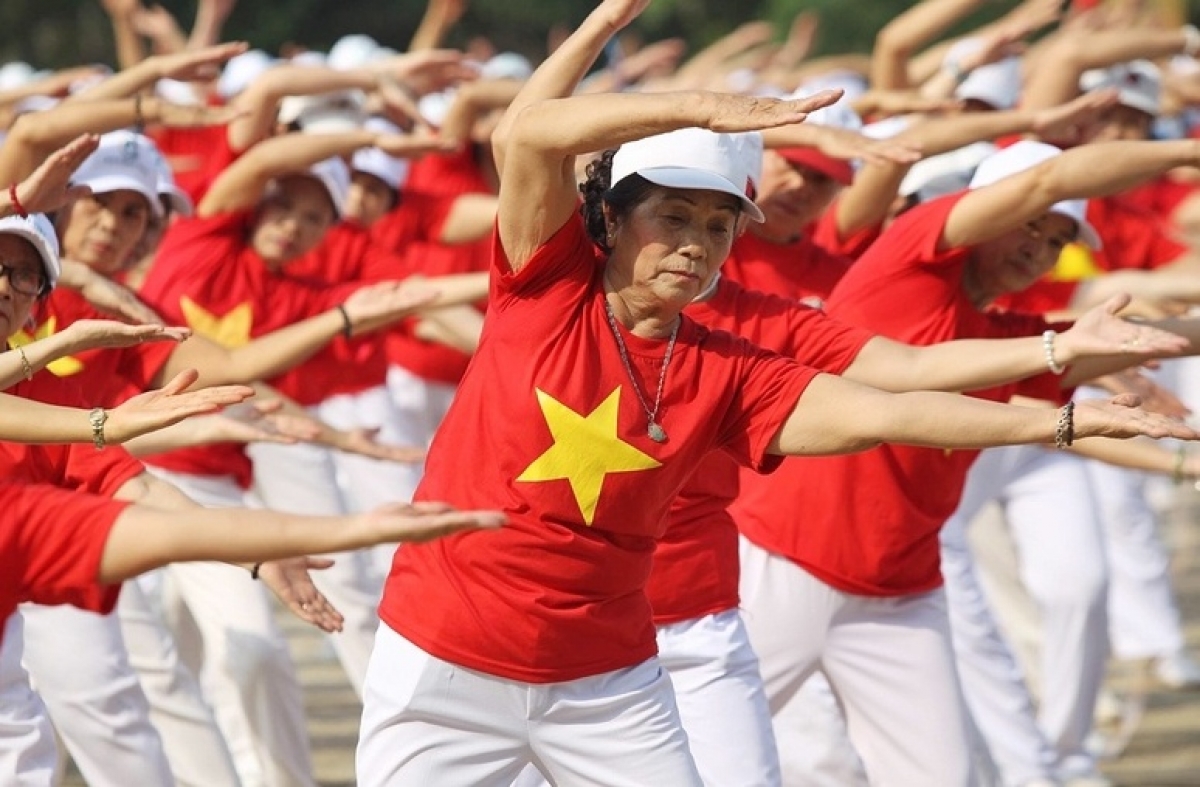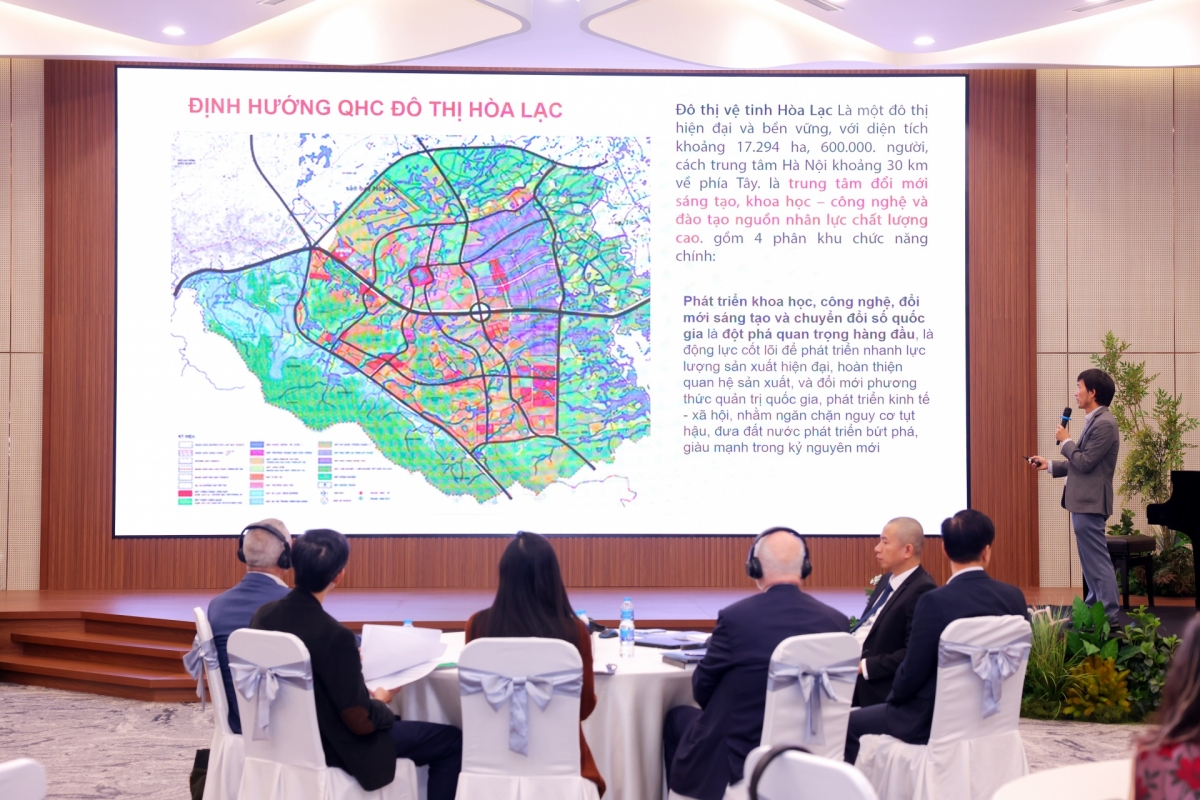INTERNATIONAL INVESTMENT
AND PORTAL
Fifty years after national reunification, Ho Chi Minh City has undergone a dramatic transformation, emerging as Vietnam’s leading economic and cultural hub. The city’s urban landscape has become increasingly modern, symbolised by iconic structures such as the Thu Thiem Tunnel, Landmark 81, Metro Line 1, the Thu Thiem New Urban Area and many more.
Each of these developments represents more than just architectural landmarks–they are milestones in the city’s journey towards urbanisation, regional integration, and global aspiration.
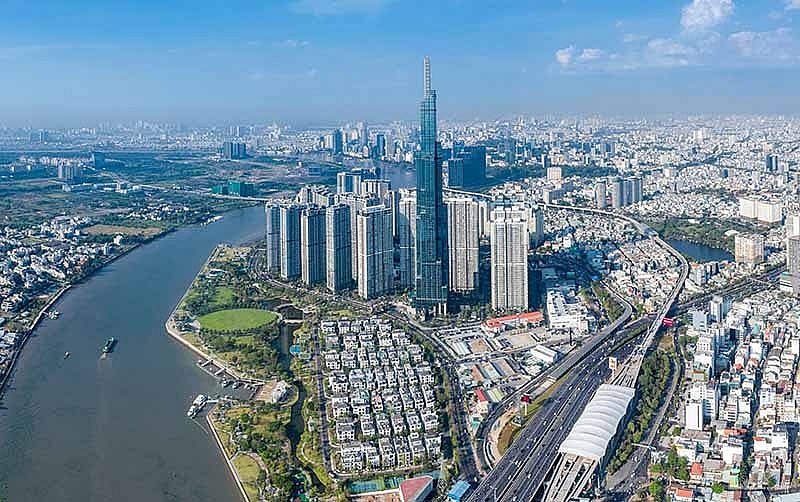 Landmark 81: A symbol of modernity and ambition
Landmark 81: A symbol of modernity and ambition
Standing at 461m, Landmark 81 is currently Vietnam’s tallest building and ranks among the tallest in the world. The skyscraper is a proud symbol of a modern, dynamic Ho Chi Minh City, featuring a luxury shopping centre, a 5-star hotel, and the SkyView observation deck offering panoramic views of the entire city.
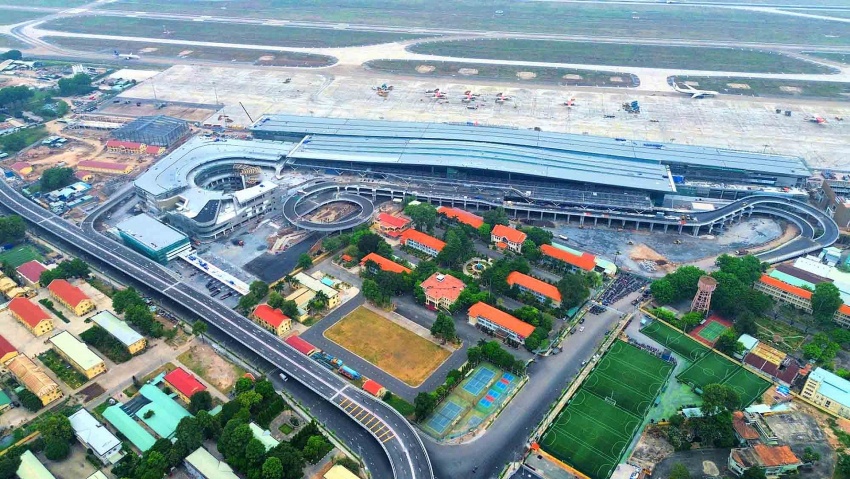 Terminal T3 – A new milestone in aviation infrastructure
Terminal T3 – A new milestone in aviation infrastructure
The newly built Terminal T3 at Tan Son Nhat International Airport is a strategic infrastructure project that enhances Vietnam’s aviation capacity. Designed to serve up to 20 million passengers annually, T3 relieves congestion at the existing terminals and promises a more convenient, modern travel experience for both locals and international visitors.
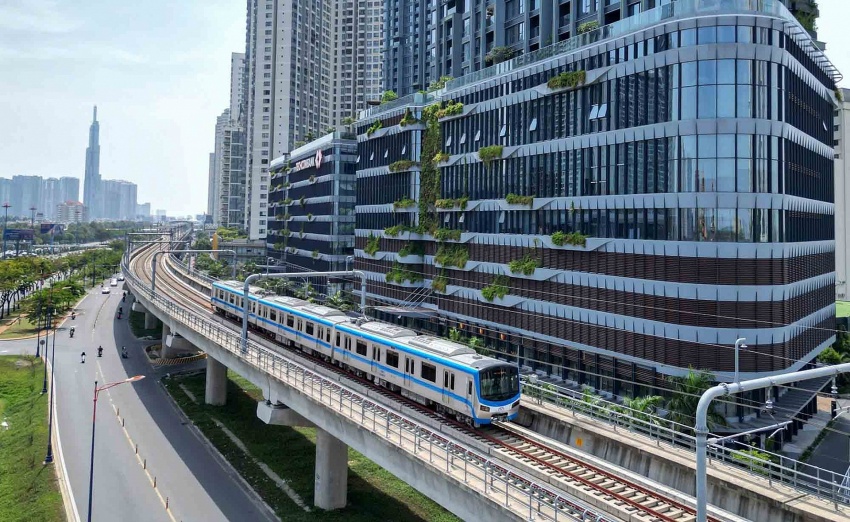 Metro Line 1: A breath of fresh air for urban transport
Metro Line 1: A breath of fresh air for urban transport
Metro Line 1 is more than a transportation project—it represents a shift towards green, sustainable mobility. Connecting Ben Thanh market in the city centre with Suoi Tien in the northeast, the metro line brings hopes of a cleaner, less congested Ho Chi Minh City, contributing to a better quality of urban life.
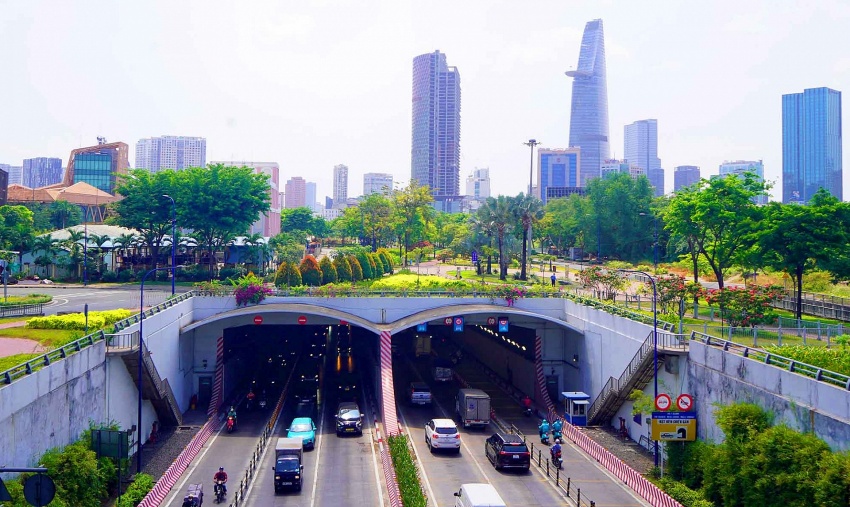 Thu Thiem Tunnel: A gateway to urban expansion
Thu Thiem Tunnel: A gateway to urban expansion
Completed in 2011, the Saigon River Tunnel was Vietnam’s first underwater traffic project, connecting District 1 to the Thu Thiem area. It plays a crucial role in reducing travel time and opening up new opportunities for urban development on the east side of the river.
 Thu Thiem: Vietnam’s future financial centre
Thu Thiem: Vietnam’s future financial centre
Spanning more than 650 hectares along the Saigon River, the Thu Thiem New Urban Area is being developed as a world-class financial and commercial hub. With modern infrastructure and master-planned zoning, Thu Thiem is poised to become a regional economic powerhouse.
From aerial views, Ho Chi Minh City appears as a vibrant, ever-evolving metropolis. Beyond being an economic engine, the city is now a magnet for global tech giants, especially in the semiconductor and electronics sectors. Its strategic location, skilled labour force, and open investment climate are positioning the city as a rising destination for high-tech industries in the region.
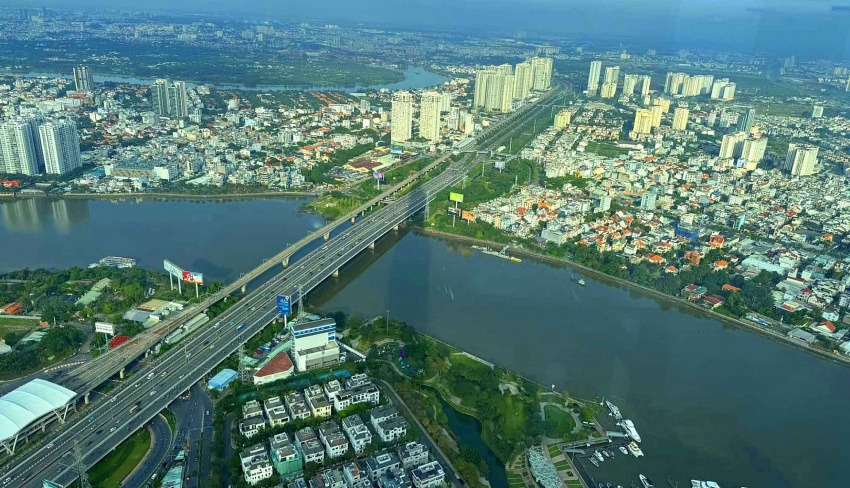 The Saigon Bridge is a vital transportation link connecting the city centre with the rapidly growing Thu Duc city in the east
The Saigon Bridge is a vital transportation link connecting the city centre with the rapidly growing Thu Duc city in the east 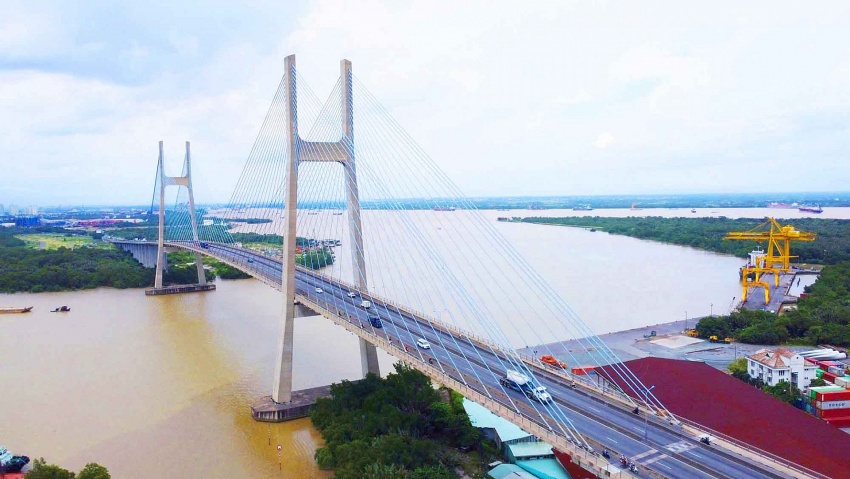 Phu My Bridge, completed in 2009, links District 2 and District 7, helping ease traffic congestion and enhancing connectivity in southern Ho Chi Minh City
Phu My Bridge, completed in 2009, links District 2 and District 7, helping ease traffic congestion and enhancing connectivity in southern Ho Chi Minh City 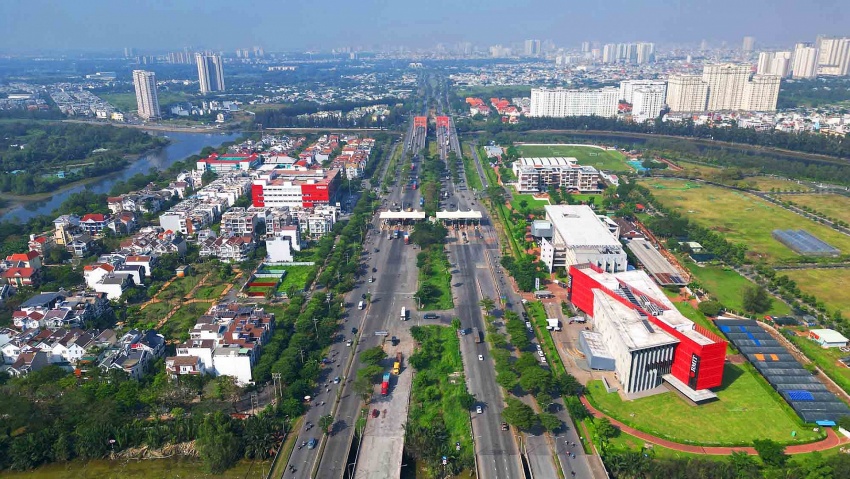 Nguyen Van Linh Boulevard: The city’s southern expressway
Nguyen Van Linh Boulevard: The city’s southern expressway
Opened in 2007, Nguyen Van Linh Boulevard stretches nearly 18km featuring 10 major bridges, including Ong Lon, Xom Cui, and Can Giuoc. It serves as a critical transport artery in the southern part of the city.
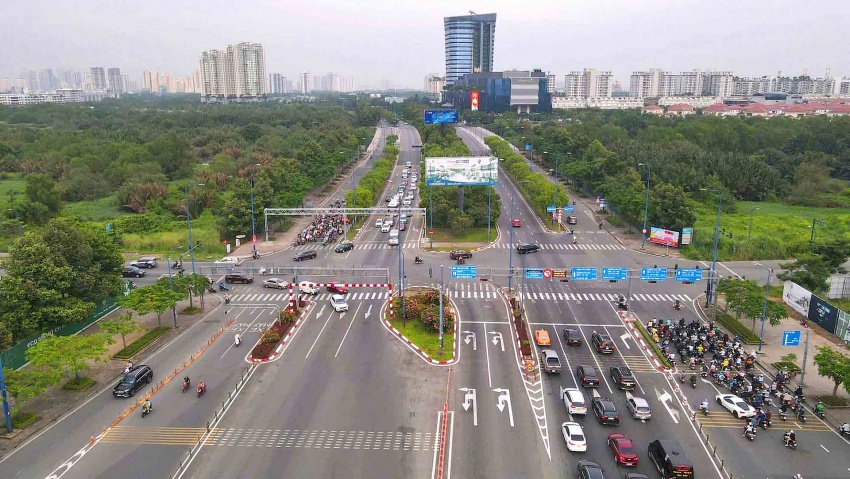 Mai Chi Tho Boulevard: A strategic connection between Ho Chi Minh City's heart and Thu Duc city
Mai Chi Tho Boulevard: A strategic connection between Ho Chi Minh City's heart and Thu Duc city
Connecting the central districts with Thu Duc city, Mai Chi Tho Boulevard links directly to Ho Chi Minh City –Long Thanh–Dau Giay Expressway, strengthening Ho Chi Minh City’s regional connectivity and further integrating it with the southeast economic corridor.
Together, these projects illustrate Ho Chi Minh City’s transformation into a modern, forward-looking urban centre, poised to become a leader not only in Vietnam but across Southeast Asia.
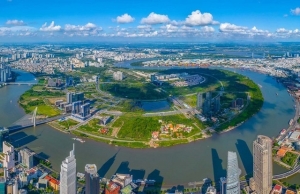 Ho Chi Minh City International Financial Centre to be built in Thu Thiem New Urban Area
Ho Chi Minh City International Financial Centre to be built in Thu Thiem New Urban Area
Thu Thiem New Urban Area on the Saigon River has been allocated as the site for Vietnam's first International Financial Centre.
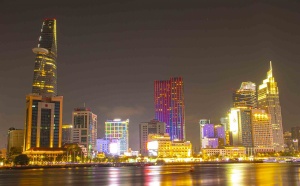 Ho Chi Minh City lights up for 50th anniversary of reunification
Ho Chi Minh City lights up for 50th anniversary of reunification
As April arrives, Ho Chi Minh City comes alive in a jubilant atmosphere, glowing brightly under a dazzling cloak of lights that illuminate the night in celebration of the 50th anniversary of national reunification, a proud milestone in Vietnam’s storied history.
 Ho Chi Minh City to celebrate 50th anniversary of national reunification
Ho Chi Minh City to celebrate 50th anniversary of national reunification
Ho Chi Minh City is planning a series of art, cultural, and historical events for the 50th anniversary of the national reunification.
By Bich Ngoc - Le Tien






